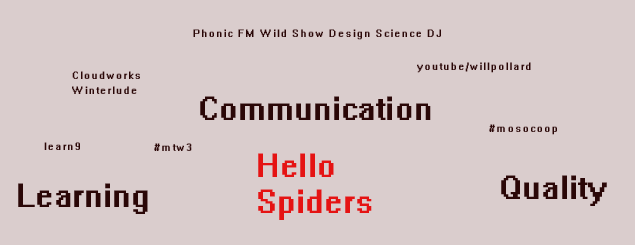Outline for Phonic on Thursday - City Centre Cafe etc
The storyteller is away again, the festival season is not quite over. So I can cover the drama hour on Phonic FM, 9 -10 Thursday morning following onto the first half hour of the Wild Show. The map is now available for This City's Centre so I can show it to JD and Chris as they arrive. Timings are approximate, maybe just before 10 and about half past. There are some existing sound clips to explain the background.
I do have some issues to raise. The video at RAMM is just a bit hard to take in. You have to look up and then the sound is only on headphones. Chris helped me to get past the QR codes so I now have the sound files though there are four at 99c. It could be easier if they just said go to CD Baby and search on Blind Ditch. Maybe it is supposed to be like a city where much is hidden or competing for attention with passers by or something else in the same space.
The short films are also quite hidden. There is no sound in the Imaginary Lounge outside Phoenix Media. Not sure about the Bike Shed Theatre, they will have longer hours in September. The best display is at Gloss Art I think. The screen is small but it is like most people view when connected to the internet. Definition is very good. Actually a DVD. And you get sound. Could there be some big plasma screens at RAMM or some sort of television style ? Or around the city? Maybe some stores would run some extracts.
I will ask Chris to check the QR codes on the map. He has an excellent iPhone. According to the small print costs can vary depending on the network and contract. Not sure what can be downloaded at home from a desktop or what the costs are. This could be a lot clearer.
Meanwhile we have a project to explore cafes in Exeter, starting with the Phoenix. There is a sort of map but we don't get far so I am revising the scale and scope. Maybe we just need notes for each week. Stay tuned to the radio. Next week I will be in Lancaster again so continue a comparison. See attached jpeg. The one way system contains a large area for walking and drinking coffee. Most homes are outside it I think. Several phone shops and lots of wifi. There is a wifi bus to the campus with an arts block at one end and an Info Lab at the other. You still need an official ID to use the wifi so I think the Exeter Innovation Centre is better on this point. They will tell you the password if you buy some coffee.
Last time I was in Lancaster I found a book on The Flaneur, published by Routledge about twenty years ago. There is a review by Dusty that suggests an update.
Flâneurie is, it can be argued, timeless (or, at least, our perspective on Baudelaire's "Painter of Modern Life" hasn't changed much in two decades), but when one of the authors starts to write about flâneurie in the age of the video-cassette, well... I pine for a newer book that takes into account the internet, the smart phone, 9/11, and Barack Obama. The book requires a rewrite!
I thought it could be about citizen journalists or content generating users. There is a lot of slippage between flaneurs who happen to be artists and also intellectuals who make sense of random observations. Possibly from a safe distance.
Also gender roles may have changed. The flaneur was assumed to be male till women visited department stores. There is an article by Janet Wolff on Gwen John, who mostly painted interiors. Not sure how this relates to #thiscityscentre but will try to find out more.
Meanwhile I have started an application for the airspace above Spacex. A balloon could support some network storage and a wifi router for a very secure system of backup. Linked to the surrounding area. The main advantage is that it could store unresolved problems till something changed. For example I want to do a map of a walk to ExCel in time for IPEX but the route for the last part of the River Lee seems unclear.





